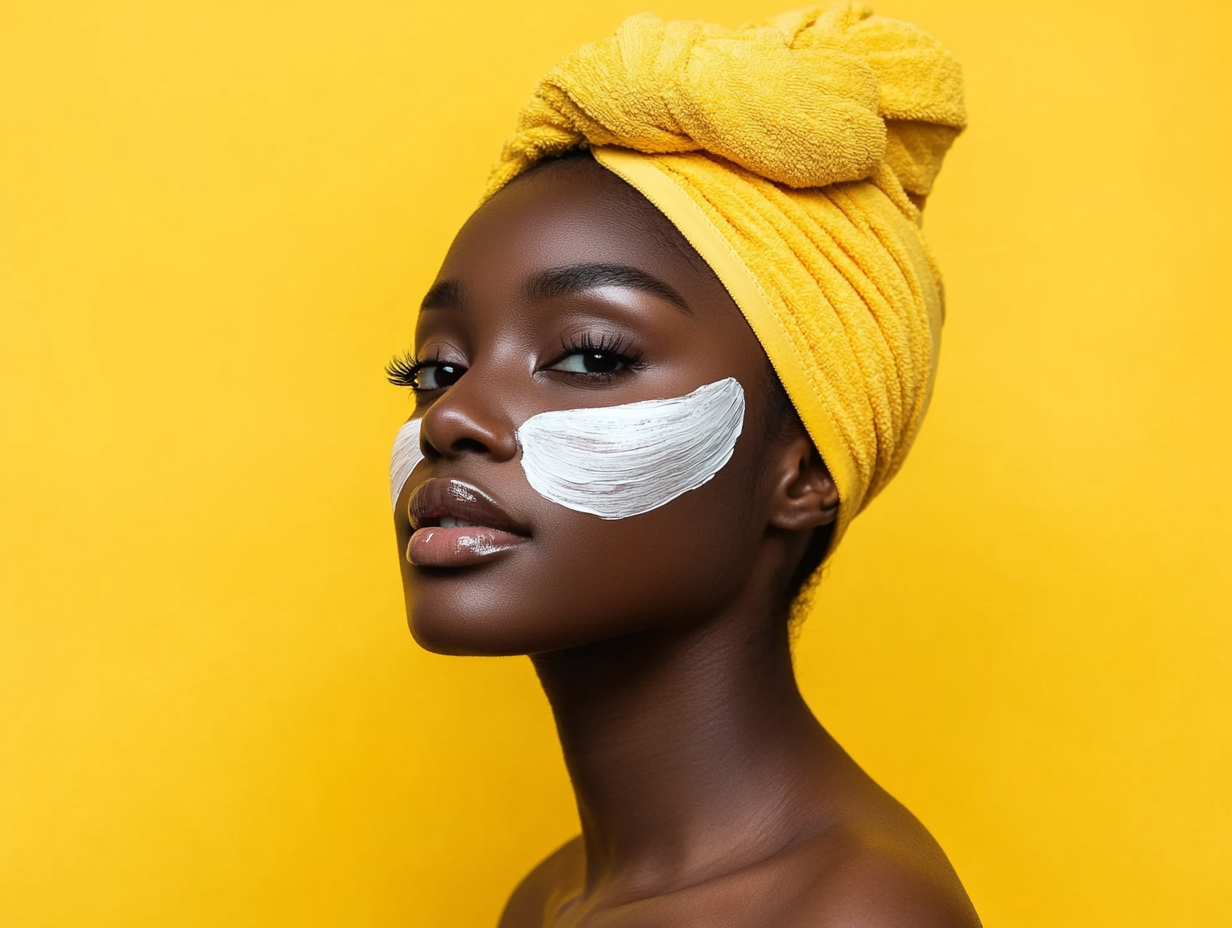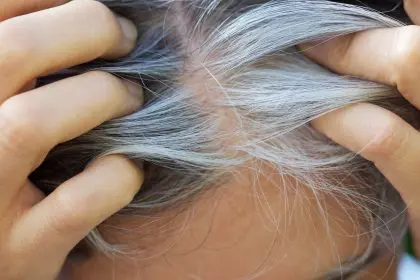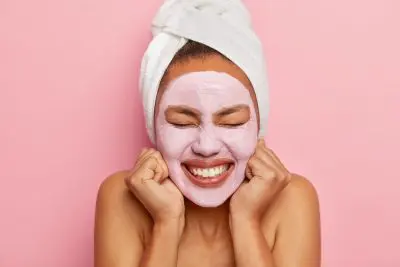Your skin is basically screaming for help right now, but instead of listening, you’re probably adding another acid or retinol to your routine because some influencer promised it would give you glass skin. Meanwhile, your skin barrier—the invisible protective layer that keeps irritants out and moisture in—is getting demolished by the very products marketed as skincare miracles.
The skin barrier damage epidemic has reached crisis levels, with dermatologists reporting unprecedented numbers of patients whose skin has been destroyed by overzealous skincare routines, harsh environmental factors, and lifestyle choices that compromise the skin’s natural protective mechanisms. What should be your body’s first line of defense has become a battlefield.
This isn’t just about temporary irritation or sensitivity. When your skin barrier is compromised, it sets off a cascade of problems that can take months to repair while making your skin more vulnerable to everything from pollution and bacteria to the very products you’re using to try to fix the problem.
The skincare industrial complex is sabotaging your skin
The explosion of active ingredients in mainstream skincare has created a generation of people who think more products and stronger acids equal better skin. This aggressive approach to skincare is systematically destroying skin barriers that took years to develop and will take months to rebuild.
Multiple acid products used simultaneously create a cumulative effect that strips away the skin’s protective lipid layer faster than it can regenerate. People are layering glycolic acid, salicylic acid, lactic acid, and retinoids without understanding that their skin barrier can’t handle this chemical assault.
The “glass skin” trend promoted on social media encourages people to pursue an artificially smooth, poreless appearance that requires stripping away the natural texture and protective elements that healthy skin needs to function properly. This aesthetic ideal is fundamentally incompatible with skin health.
Viral skincare routines featuring 10+ steps with multiple active ingredients create complex chemical interactions that can sensitize and damage skin in ways that individual products might not. The more products you layer, the greater the risk of barrier disruption.
Marketing messages that promote daily exfoliation and immediate results pressure people to use products more frequently and aggressively than their skin can tolerate. The “no pain, no gain” mentality applied to skincare is creating widespread barrier damage.
Environmental assault is overwhelming your skin’s defenses
Air pollution levels in urban areas have reached concentrations that overwhelm the skin’s natural ability to protect against particulate matter and toxic chemicals. These pollutants penetrate compromised skin barriers and create inflammatory responses that further damage protective mechanisms.
Climate change has created more extreme weather patterns that stress skin barriers through dramatic temperature fluctuations, increased UV exposure, and altered humidity levels. Your skin is constantly trying to adapt to environmental conditions that change faster than it can adjust.
Indoor air quality has deteriorated due to synthetic materials, cleaning chemicals, and poor ventilation that expose skin to volatile organic compounds and other irritants. The air inside your home and office may be more damaging to your skin barrier than outdoor pollution.
Water quality issues including chlorine, fluoride, and other chemicals in municipal water supplies strip natural oils from skin during daily cleansing. Hard water with high mineral content can leave deposits that interfere with skin barrier function and product absorption.
Electromagnetic radiation from devices, WiFi, and other sources may affect cellular function in ways that compromise skin barrier integrity. While research is ongoing, many people report skin improvements when they reduce electromagnetic exposure.
Stress is literally eating your skin alive
Chronic stress elevates cortisol levels that directly interfere with skin barrier repair mechanisms and reduce the production of natural moisturizing factors that keep skin healthy. When you’re stressed, your skin literally can’t maintain its protective functions properly.
Sleep deprivation prevents the overnight repair processes that rebuild and strengthen the skin barrier. During deep sleep, your skin increases cell turnover and produces the lipids necessary for barrier function, but poor sleep quality disrupts these crucial repair cycles.
The inflammatory response triggered by chronic stress creates systemic inflammation that shows up in skin as increased sensitivity, delayed healing, and compromised barrier function. Your emotional state directly affects your skin’s physical resilience.
Modern lifestyle stress from work demands, financial pressure, and social media comparison creates persistent low-level activation of stress responses that keep your skin in a constant state of emergency rather than allowing for normal maintenance and repair.
The gut-skin axis means that stress-related digestive issues directly affect skin barrier function through inflammatory pathways and nutrient malabsorption that deprives skin of the building blocks needed for healthy barrier maintenance.
Your diet is starving your skin of what it needs
Processed foods lack the essential fatty acids, vitamins, and minerals necessary for healthy skin barrier function while containing inflammatory compounds that actively damage protective mechanisms. The standard American diet is essentially anti-skin nutrition.
Essential fatty acid deficiencies from avoiding healthy fats create dry, inflamed skin with compromised barrier function. Your skin barrier is made largely of lipids, and without adequate healthy fats in your diet, it can’t maintain its protective structure.
Sugar and refined carbohydrates create advanced glycation end products that damage collagen and interfere with skin barrier repair processes. The inflammatory response from high-glycemic foods shows up in skin as increased sensitivity and slower healing.
Nutrient deficiencies in zinc, vitamin D, and omega-3 fatty acids directly affect skin barrier integrity and repair capacity. Many people following restrictive diets or eating primarily processed foods are unknowingly starving their skin of essential nutrients.
Dehydration from inadequate water intake and excessive consumption of diuretic beverages like coffee and alcohol prevents proper skin barrier function. Your skin needs adequate hydration from within to maintain its protective lipid bilayer.
The overcleansing obsession is backfiring spectacularly
The fear of bacteria and oils has created an overcleansing culture where people strip their skin multiple times daily with harsh cleansers that remove beneficial microorganisms and natural protective oils along with dirt and pollution.
Double cleansing, oil cleansing, and cleansing devices used daily can disrupt the skin’s acid mantle and natural microbiome that protect against harmful bacteria and environmental damage. The skin’s natural pH and bacterial balance are crucial for barrier function.
Hot water and aggressive scrubbing damage the delicate lipid layer that forms your skin barrier. Many people unknowingly compromise their skin every morning and evening through cleansing habits that are too harsh for daily use.
The antibacterial soap trend has eliminated beneficial bacteria that normally live on healthy skin and help maintain barrier function. Your skin needs its natural microbiome to function properly, but harsh cleansers create an environment where harmful bacteria can thrive.
Cleansing immediately after sweating or exercise removes the natural moisturizing factors that your skin produces during physical activity. These natural compounds are actually protective, but cultural conditioning makes people rush to wash them away.
Rebuilding your barrier before it’s too late
Skin barrier repair requires a complete mindset shift from aggressive treatment to gentle support of your skin’s natural healing processes. This means dramatically simplifying your routine and focusing on barrier-supporting ingredients rather than active treatments.
Ceramides, cholesterol, and fatty acids are the building blocks of healthy skin barriers and should be prioritized over acids and other active ingredients during the repair phase. Look for products that specifically support barrier function rather than promising dramatic changes.
The sandwich technique of applying moisturizer to damp skin, then sealing with an occlusive product like petroleum jelly or a facial oil, helps trap moisture and create optimal conditions for barrier repair. This simple method often works better than expensive barrier repair products.
Eliminating potential irritants including fragrances, essential oils, and unnecessary active ingredients allows your skin to focus energy on repair rather than constantly defending against chemical assault. Sometimes the best thing you can do for your skin is to use fewer products.
Sun protection becomes even more crucial when your barrier is compromised because damaged skin is more vulnerable to UV damage that further impairs healing. Use mineral sunscreens that don’t contain chemical filters that might irritate sensitive skin.
Stress management, adequate sleep, and anti-inflammatory nutrition support skin barrier repair from the inside out. Your skin barrier is a reflection of your overall health, and addressing systemic issues often resolves skin problems more effectively than topical treatments alone.
The goal isn’t perfect skin—it’s healthy, functional skin that can protect you from environmental threats while looking and feeling comfortable. Once your barrier is repaired, you can carefully reintroduce active ingredients if desired, but the foundation of healthy skin is always a strong, intact barrier.
Patience is essential because barrier repair takes 4-6 weeks minimum, and rushing the process with additional products or treatments often sets back progress. Trust your skin’s natural healing capacity and resist the urge to add more products when you don’t see immediate improvement.















